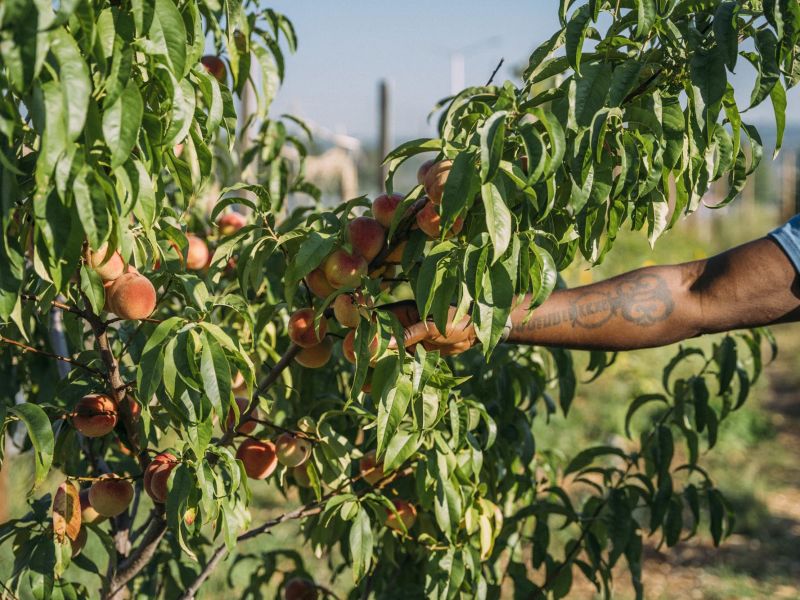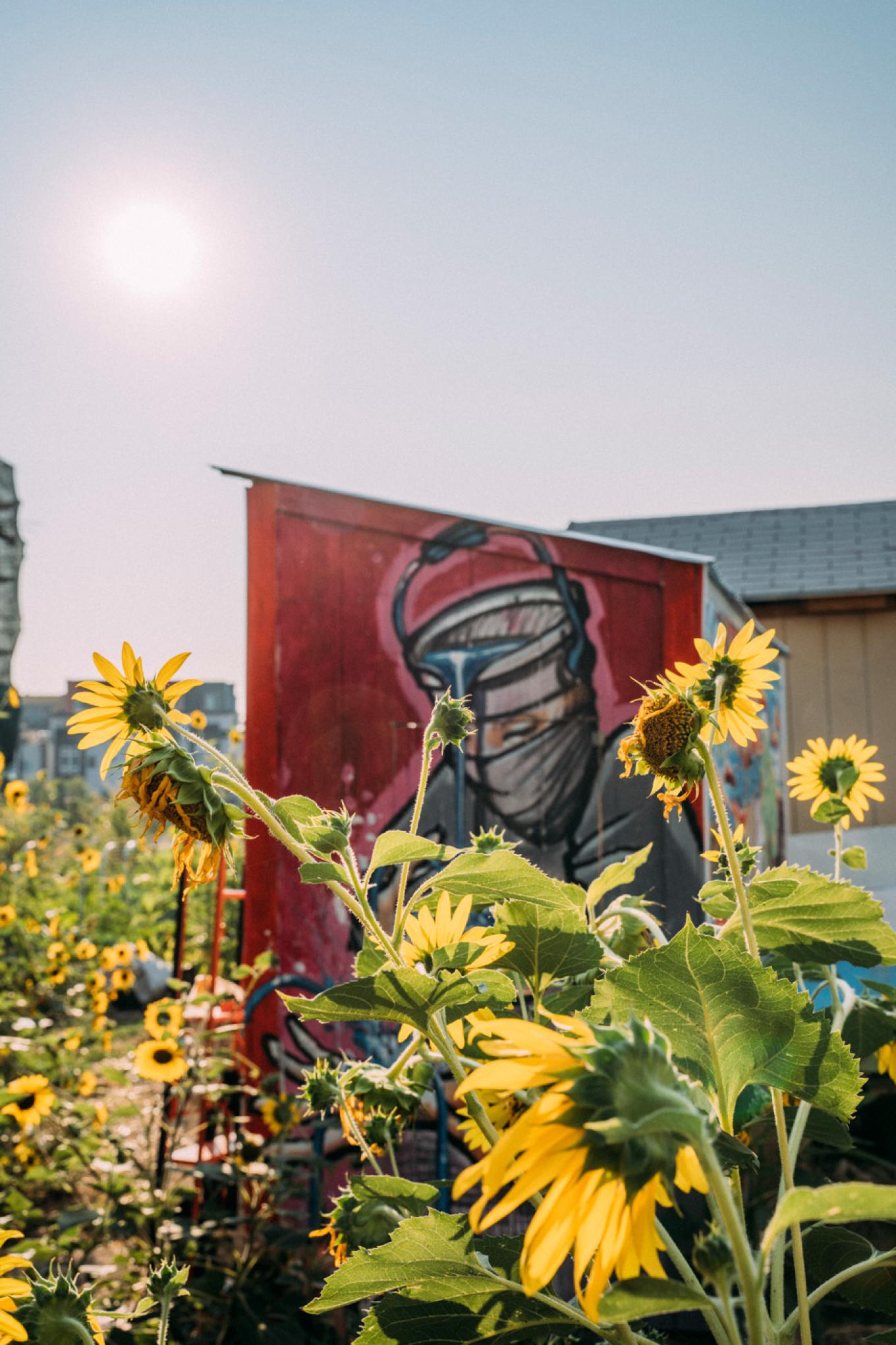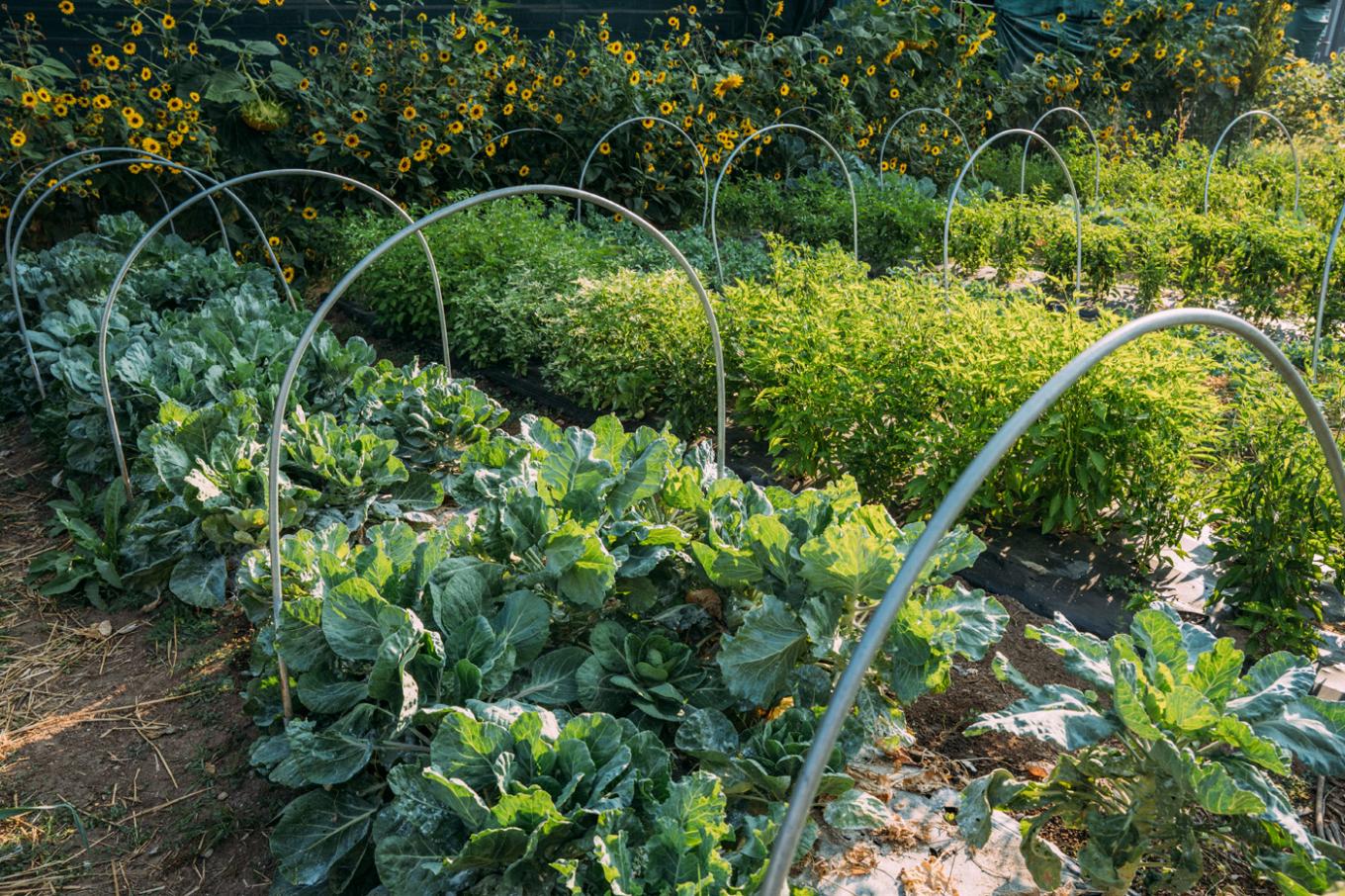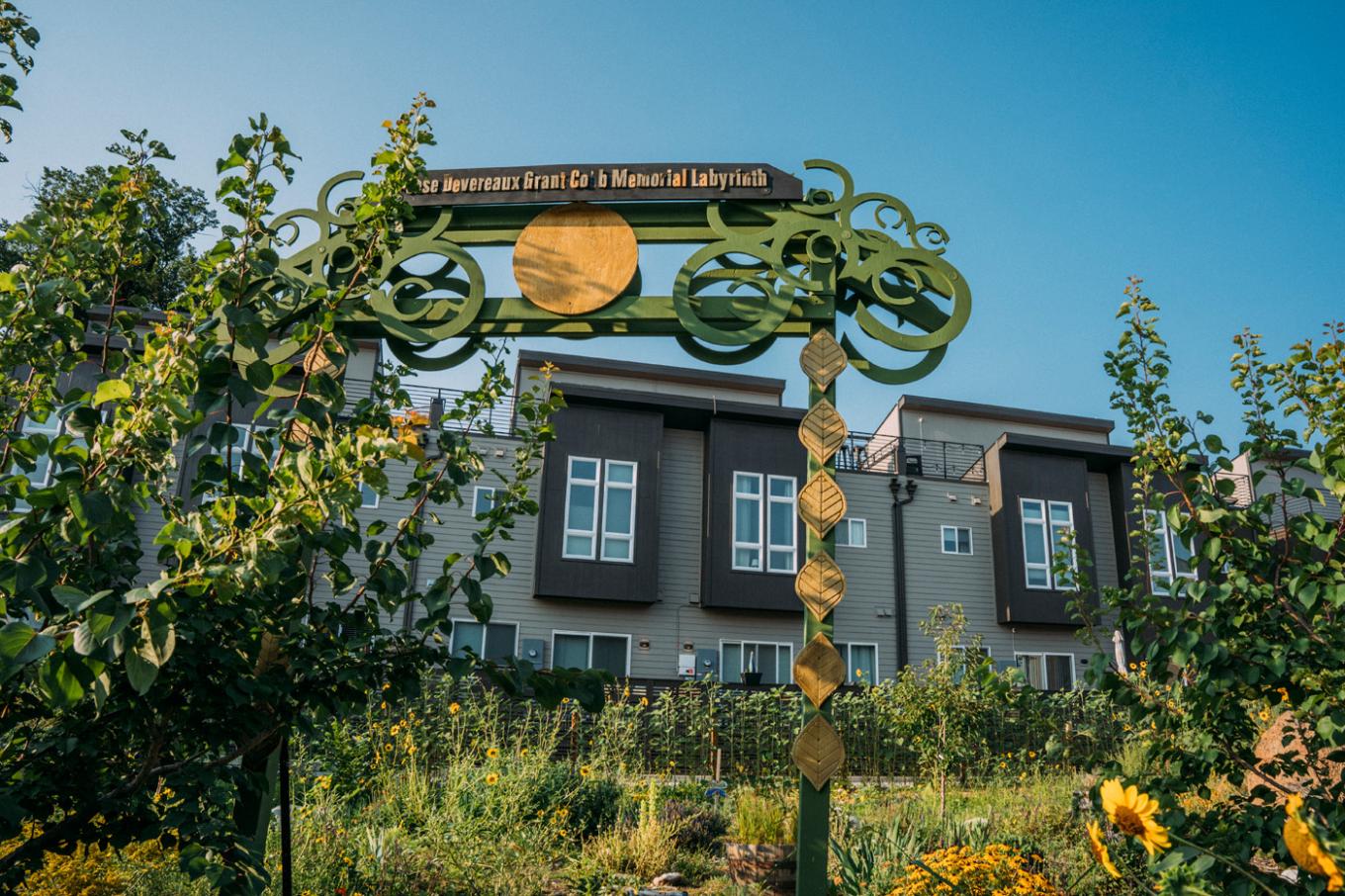
The Mad Agriculture Journal
Notes from the Field: FrontLine Farming
Published on
July 06, 2023
Written by
Clark Harshbarger
Traveling south from my home in northeast Boulder County to visit our friends at Frontline Farms in Denver, you see farmland preserved by open space policy and conservation easements. The backroads are dotted with a series of reclaimed gravel pit ponds that are common in the Saint Vrain Valley. The ponds provide recreation, livestock water, irrigation, and green space. But as you travel east and south, you see wheat fallow fields that have been converted to Amazon distribution centers, Costco’s erecting over 100 year old alfalfa fields, and, of course, urban sprawl. Views once held by only a few farmers and ranchers can now belong to anyone who is willing to share them with a thousand other neighbors.
Every time I commit to travel to Denver I wonder, what have I got myself into. Traveling on I-25 you can expect bumper to bumper traffic from Thornton all the way through Centennial traveling south on I-25 from my home in Longmont, especially during morning and evening commute hours. But I was determined to see what the team at Frontline Farm had created amidst Denver’s concrete jungles.

Winding through a labyrinth of newly constructed condominiums, I passed the Sisters of St. Francis of Penance & Christian Charity and soon saw the first signs of agriculture. I peaked out around the corner and saw some folks tending a field - “agrarians!” These agrarians were the new Sister Garden caretaker, Phurious Fountain, the Frontline Farm CSA director, Alexis Albanez, and another volunteer.
Frontline Farms practices human scale agriculture. Jean-Martin Fortier describes human scale agriculture as: “… the design of the farm, the layout of the beds, the distance between installations, the tools, systems, and methods are all designed based on the scale of the people working on it. In contrast to industrial farming, which revolves around the tractor, we aim to optimize farming operations to create a functional and beautiful habitat for the farmers.”
The agrains were working in a wedge shaped space, aptly named the Wedge Garden. The garden is a green oasis amongst roads and buildings that has been turned into a regenerative farm. At Frontline Farm’s urban farms, almost all of the gardens are tended with hand tools and labor. Our task was to remove nature’s go-back land species like globe mallow, cheatgrass, alfalfa, smooth brome grass, bind weed, and dandelion. The soil had beautiful structure- rhizosheath were abundant, it was friable to the touch, and looked to be well suited for cultivation.
As we worked, we talked. One benefit of human scale agriculture is that you typically have company nearby and with no loud engines or motors running, it is pleasant to chat. Phuroius told me how he had just moved to Denver and was already feeling the tension of living and working in the front range while yearning to be spending time in the Colorado Rockies. We all shared stories. Phurious and Alexis were both kind and inquisitive and wanted to know about my travels and about other farms I had seen and worked on. I found them both to be wise beyond their years. It gave me comfort to know they had had great mentors and were on a great team at Frontline Farms. It felt great to be in this regenerative oasis as we reflected under the shade of a mature flowering Hawthorn tree.

The four of us had cleared an 80 foot by 3 foot bed in less than 4 hours. The bed will be planted into summer crops such as squash, corn, melons and/or cucumbers. In this area of Colorado, drip tape is commonly used to irrigate annual vegetable crops. At Frontline Farms and many other market gardens, they typically plant in rows of three or four and use accompanying lines of drip tape. After installing the drip tape, they will be ready to plant. They will use a Jang seeder or they will transplant evenly spaced starters into the bed, using straw mulch to tuck them in and to keep the soil covered.
After we cleared the garden bed I asked Phurious if he would take me to see the Sister Garden. The Sister Garden namesake was, in fact, the Sisters of St. Francis of Penance & Christian Charity that I had driven by earlier. It was one of the few structures around when Fatuma Emmad, Frontline Farms Executive Director and head farmer, began the garden in this area several years ago. Over those last several years, the condo complex was developed and enclosed the Sister Garden. Nestled in the courtyard held another oasis as a result of the hard work and dedication of the Frontline Farm’s vision. There were neatly established beds, an orchard, shrubs, pollinators, washing station, tool shed, and, of course, beautiful healthy soil! The most striking feature of Sister Gardens was a circular mandala garden that had been created in memory of a brother they had lost to police brutality - truly a sight to see, reflect and take pause at. I thought of the immortal words from Peter Tosh’s song Equal Rights, “we cannot have peace, until we have equal rights and justice.” The mandala garden is a physical reminder that regenerative agriculture must go beyond just having healthy soil.
I thanked Phurious for sharing the garden and his time with me in the field and was on my way. Our Lands team loves to serve the farms in our community and across our farm network so please reach out if you have an opportunity where you could use a hand. We love to share what we learn on our journeys and to find ways to help others continue on their regenerative journey.
